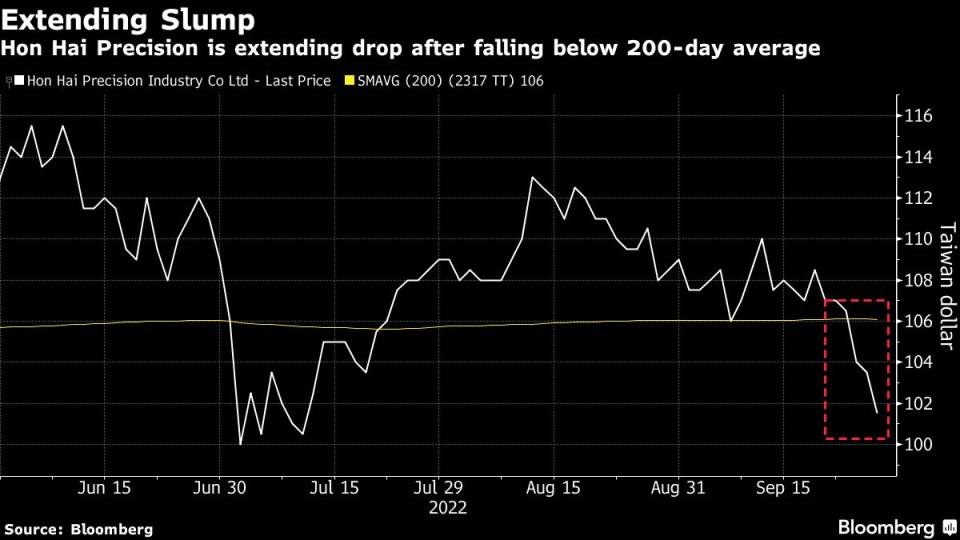Apple Ditches iPhone Production Increase After Demand Falters
(Bloomberg) -- Apple Inc. is backing off plans to increase production of its new iPhones this year after an anticipated surge in demand failed to materialize, according to people familiar with the matter.
Most Read from Bloomberg
Tesla Falls Most Since June as Quarterly Deliveries Disappoint
Stocks Stage Oversold Comeback as ISM Sinks Yields: Markets Wrap
OPEC+ Set to Discuss 1 Million-Barrel Output Cut as Demand Slows
The Cupertino, California-based electronics maker has told suppliers to pull back from efforts to increase assembly of the iPhone 14 product family by as many as 6 million units in the second half of this year, said the people, asking not to be named as the plans are not public. Instead, the company will aim to produce 90 million handsets for the period, roughly the same level as the prior year and in line with Apple’s original forecast this summer, the people said.
Demand for higher-priced iPhone 14 Pro models is stronger than for the entry-level versions, according to some of the people. In at least one case, an Apple supplier is shifting production capacity from lower-priced iPhones to premium models, they added.
Apple shares fell 3.9% in New York Wednesday morning to $145.90. The shares are down 18% this year, compared with a 23% drop in the S&P 500 Index.
Analysts at Morgan Stanley and Oddo said the news didn’t imply any downside to their volumes forecasts. Bloomberg Intelligence analyst Anurag Rana said he “was not surprised” by the report and continues to “believe that weak demand from Europe and China could hurt overall iPhone sales in fiscal 2023.”
In Taipei, key chipmaker Taiwan Semiconductor Manufacturing Co. fell 2.2% and Apple’s biggest iPhone assembler Hon Hai Precision Industry Co. was down 2.9%, amid a wide selloff of electronics suppliers. ASML Holding NV, maker of advanced chipmaking gear, dropped as much as 3.2% in Amsterdam.
Apple Suppliers Drop as Firm Said to Ditch IPhone Output Boost
Apple had upgraded its sales projections in the weeks leading up to the iPhone 14 release and some of its suppliers had started making preparations for a 7% boost in orders.
An Apple spokesperson declined to comment.
China, the world’s biggest smartphone market, is in an economic slump that’s hit its domestic mobile device makers and also affected the iPhone’s sales. Purchases of the iPhone 14 series over its first three days of availability in China were 11% down on its predecessor the previous year, according to a Jefferies note on Monday.
Global demand for personal electronics has also been suppressed by surging inflation, recession fears and disruption from the war in Ukraine. The smartphone market is expected to shrink by 6.5% this year to 1.27 billion units, according to data from market tracker IDC.
“The supply constraints pulling down on the market since last year have eased and the industry has shifted to a demand-constrained market,” said Nabila Popal, research director at IDC. “High inventory in channels and low demand with no signs of immediate recovery has OEMs panicking and cutting their orders drastically for 2022.”
(Updates with US trading and analyst comments in fifth paragraph.)
Most Read from Bloomberg Businessweek
Millions in Cryptocurrency Vanished as Agents Watched Helplessly
The Unstoppable Dollar Is Wreaking Havoc Everywhere But America
As Home Prices Surge, Americans Are Moving to Cheaper Places
?2022 Bloomberg L.P.











